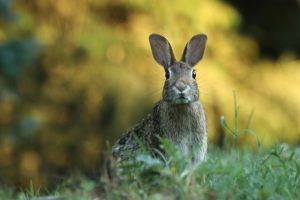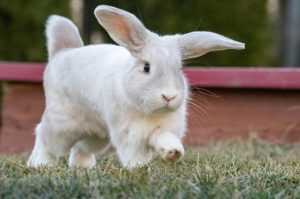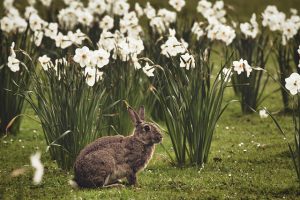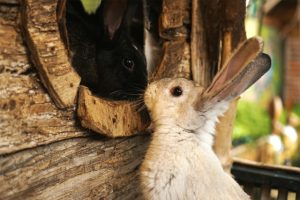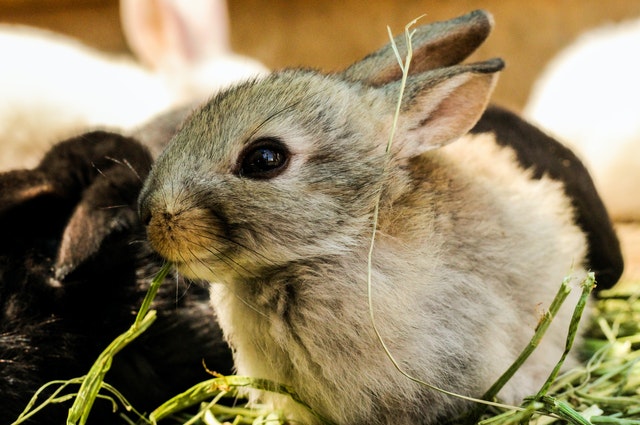
Rabbits are unlike many other animals in the Animal Kingdom. A rabbit is unable to vomit or regurgitate. This means that if the rabbit has rotten food or poison in its system, they are unable to get rid of it.
Contents
Another aspect of a rabbit and the digestive system is that the rabbit is likely to cycle through the poison or bad food twice. This is because the rabbit is caecotrophic. This means that they will eat some of their own faeces.
When the statement says bad food, this also means foods that a rabbit should not eat. This includes garlic, onions, chocolate and grapes. These are just a few foods that the rabbit should not eat.
Symptoms of Poisoning
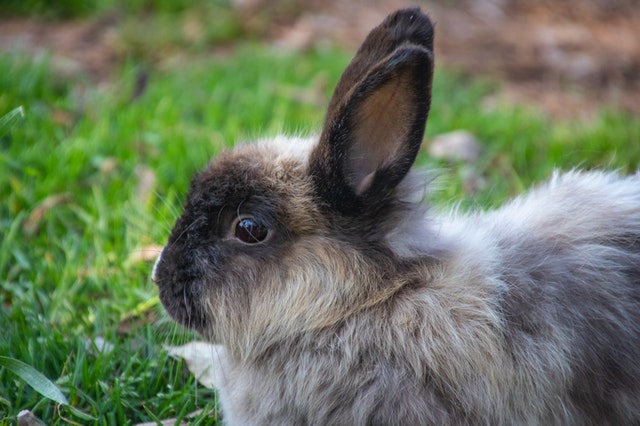
The level of toxicity in your rabbit will vary depending on how long the poison has been in the rabbit’s system, the severity, also the age and health of your rabbit, the toxicity can range from mild to severe.
These symptoms will not be present in each rabbit, some of them may not be noticeable. However, these are symptoms that you need to watch for and be aware of. Signs to watch for include:
- Tender abdominal region
- Internal or external bleeding
- Difficult or having a hard time breathing
- Lethargy
- Diarrhoea
- Hunched over in body position
- Irregular heartbeat
- Weakness
- Lack of Appetite
- Refusal to eat or drink
- Tenderness in the mouth
- Pain
- Seizures
- Brown or dark coloured urine
- Body temperature too high or too low
Causes of Poisoning in Rabbits
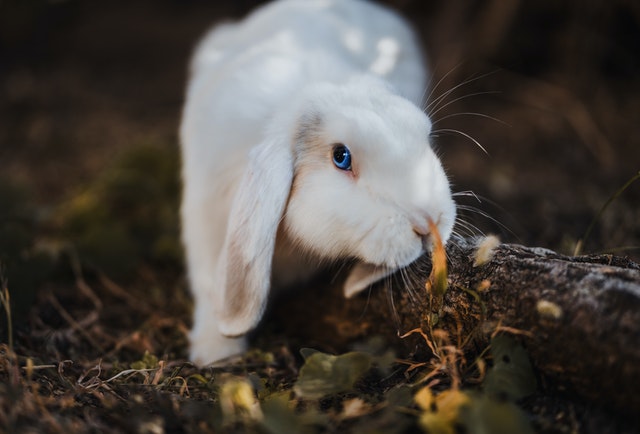
Sometimes it could be unintentional that the Rabbit has been affected by the poison. There are applications such as Flea control products, ointments or sprays that are highly concentrated, insecticides and pesticides for indoor or outdoor use.
Other possibilities of poison ingestion will include:
- Foods that rabbits should not consume.
- Rat or Mice poisons
- Certain veterinary medicines
- Automotive products like antifreeze, oil
- Household products such as cleaning liquids, air sprays
- Herbicides
- Human medication
- Metals
- Certain plants, such as Ivy, Foxglove and Rhubarb
Inhaling many of these aero spray products will affect the rabbit's lungs and breathing. This may also be a cause of toxicity.
When to contact the veterinarian
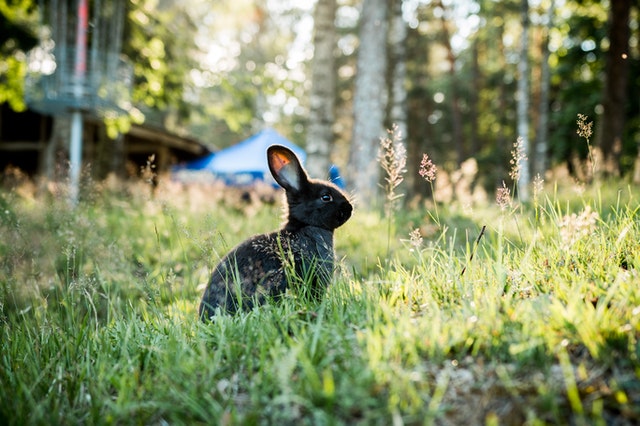
If you even suspect that it is a possibility that the rabbit inhaled or consumed something dangerous or poisonous, contact the veterinarian immediately. You will likely be told to get to the animal hospital quickly.
Once there, the vet will listen to all information and then will begin an examination. If you know what the product was, the package should be brought with you to the vet. By doing a physical examination, the veterinarian will be able to rule out other illnesses or conditions that appear the same as poisoning.
The vet may find remnants from a plant or dried residue from household sprays or pesticides or insecticides within the fur. Blood tests will also be done, as will X-rays to check for foreign objects, internal bleeding or masses.
Prevention
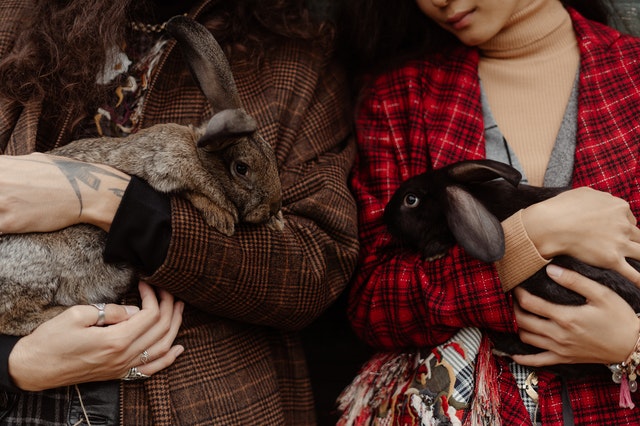
Rabbits are wonderful pets to have. They are sociable creatures and they are very active. Many owners prefer to allow their rabbits to roam in the area where they are kept. This could be indoors, such as the home; or outdoors as in a shed or barn.
This can lead to issues such as the poisoning of the rabbit or rabbits you own. Especially if you are a single person or a couple. There is less concern in regards to locking things up. Cleaning agents, pesticides, herbicides, and vehicle needs are all items that need to be kept away from your rabbit.
Rabbits like to gnaw on things. They do this to help keep the tooth growth down. This is the instinct of a rabbit. This should be hay and grasses that they chew on to help with the dental issues. However, curiosity can sometimes get the best of even the apparently smart rabbit.
By eliminating all possibilities of your rabbit chewing on products that are dangerous to its health and life, you caregiving your rabbit the ability to stay alive and healthy.
Medicines, cleaning products and even small objects that they may chew on would be best kept away where the rabbit cannot reach the items. This may even mean putting childproof locks on the cupboards to prevent the door from opening. For the truth in this, putting them in a cabinet that is higher off the floor is an even safer plan. There is no access to the items then.
Household plants that are dangerous to the rabbit should also be removed from the interior if the rabbit is kept in the house as a free roam rabbit. Plants are what rabbits eat in the wild. Instinct often keeps them away from dangers, however, curiosity most often wins out when it comes to your rabbits.
Plants such as Ivy, lavender and sage and rhubarb, are some plants that become tempting to a rabbit. These are poisons to their digestive tract. As stated, they will not consume it just once and walk away, since they eat their first droppings of faeces in the morning, they will be getting this poison into their system twice.
Again, the protective instinct does not always prevent a rabbit from doing something harmful to itself. Plants are plants and the rabbit will chew on them. Even outdoors, if your rabbit roams free, it is wise to remove any plants that are toxic to your bunny.
When you are not home, or outdoors with your rabbit, it is best to keep the rabbit in his cage. This way you can keep an eye on him or her and steer him clear of the dangers when you are home and the rabbit is out of the cage.
A rabbit cage should feel like home
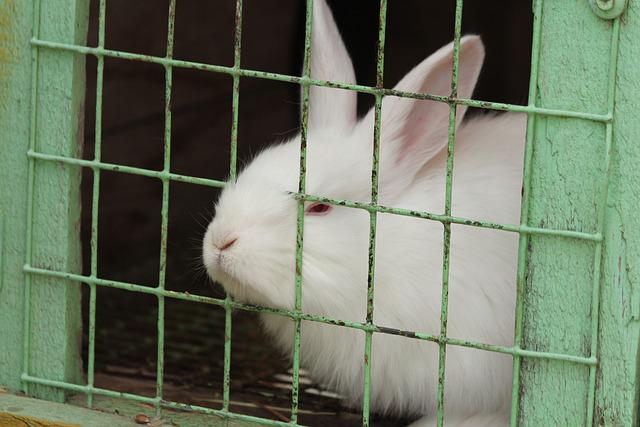
A rabbit cage should be large enough to allow the rabbit to move around and hop a little bit. However, the openings in the wire should not be large enough to allow the rabbit to squeeze through.
The common dog kennel is a great cage for indoor or outdoor rabbits. These allow for plenty of movement and are large enough to make a sleeping area in it and a feeding area. Their ‘bathroom’ will also have a space that is not near their food dish or their sleeping area.
Another type of ‘cage’ that may work well is the child playpen or play area. You may need to put wire mesh or screening of some type over the top, however, these play areas give the rabbit lots of room to run and play and still remain safe.
If you are lucky enough to dedicate a whole room to your rabbit for his area, be sure there are no wires exposed, cover the baseboards with masking tape to hinder gnawing on the wood. Give the rabbit plenty of stimulating toys to keep him busy and be sure to have an area with soft hay or blankets where he or she can sleep.
Always remember that rabbits are social animals. They love to interact with other rabbits and will interact with the owner too, in time. Spend some quality time with your rabbit on a daily basis, if not a couple of times daily. Play with the toys so the rabbit has an idea of what to do with them.
Toys can keep their mind occupied so they are not being destructive. Destructive behaviour could be difficult to get under control. Doing it right the first time, with the cage, toys, sleeping area and attention will help to prevent the negative issues.
Rabbits are not only sociable, they are inquisitive little fluffy guys. When they see things sticking out, or sitting out, their natural instinct is to investigate. They will not avoid the item because they know it is dangerous for them. Whether it is a wire sticking out of the wall, a medicine bottle within reach or plants they should not eat, this is your responsibility as the owner to prevent any possible accidents from happening.
Proper housing is the best way to begin the journey of owning rabbits. As always, if you suspect the rabbit may have eaten or chewed some type of item or object, if the rabbit is showing any of the above signs of distress, call the Animal Hospital immediately and take the rabbit in as soon as possible!
Conclusion
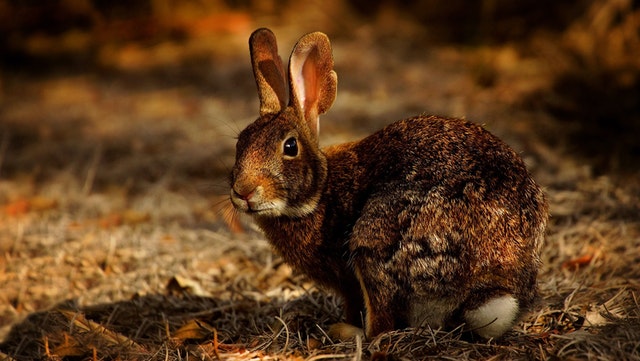
Time is always of the essence, and remember that rabbits will eat their own faeces, so it is not just one time that the possible deadly toxin is getting into the digestive system of your rabbit. It is two or more times. The level of toxicity may slowly diminish each time they drop faeces, however, the toxin is still there and will still affect your rabbit.
Ingesting any toxic substance will not affect just one aspect of your rabbit. That toxin will have an effect on all organs and systems within your rabbit. Your rabbit will show signs of illness and you need to monitor your rabbit closely, and take the precautions necessary to keep the rabbit safe.
There are simple tasks to prevent any negative issue or any possibility of the rabbit being hurt.


